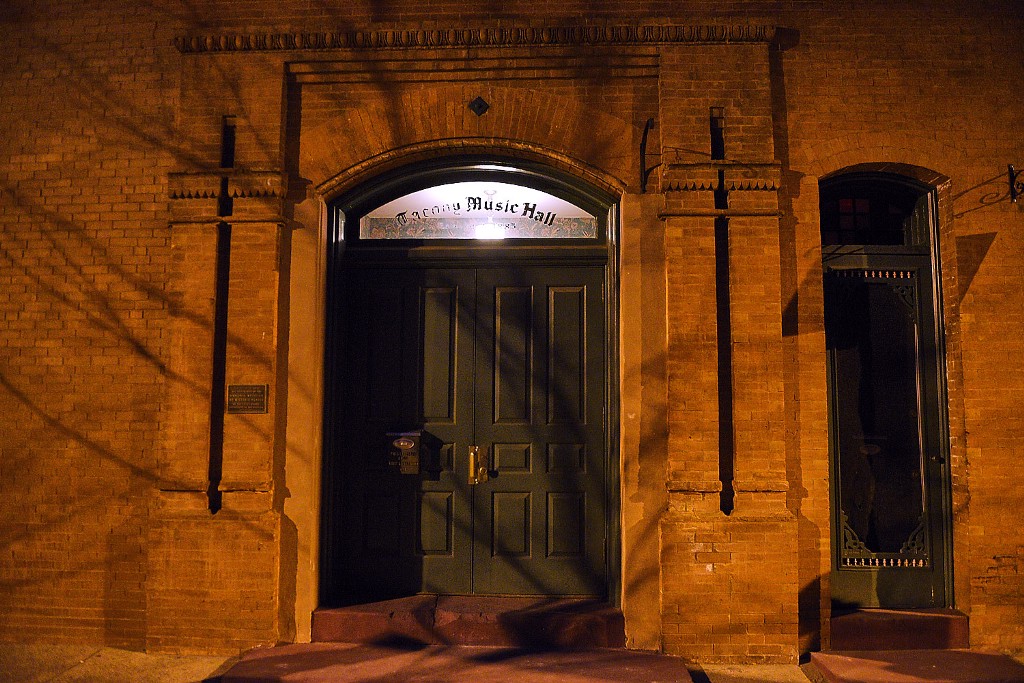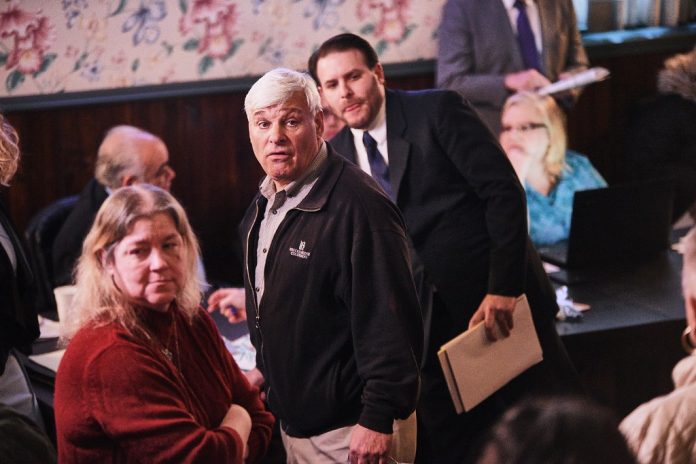Advocates of a proposed “sex-positive” community center in Tacony showed up for an April 5 hearing in front of the city’s Zoning Board of Adjustment, and so did several skeptical neighbors. But a hearing for the controversial Philly Music Hall never transpired.
Instead, the community center’s attorney asked for a postponement of the session that might have granted it a permit to open legally at 4815–19 Longshore Ave. Then a couple of days later, Philly Music Hall obtained its needed permit anyway, without a hearing and despite overwhelming objection from the surrounding community.
Now, City Councilman Bobby Henon, state Sen. John Sabatina and state Rep. Mike Driscoll are lining up behind the Tacony Civic Association to mount a legal challenge to the permit.
On Monday, the lawmakers and civic leaders co-signed a letter addressed to the city’s Department of Licenses and Inspection stating their intent to file an appeal, which could trigger another zoning board proceeding. They have just under a month to file a formal appeal.
“The community wants a ruling from the zoning board on what the use is and if it’s a regulated use,” Henon told the Northeast Times. “It will be up to the zoning board and the courts.”
The letter states in part: “We believe that this use permit was issued by the department in error. Based on the applicant’s own public statements, advertising and promotional materials, we believe the applicant’s use to be a regulated adult-oriented use and therefore prohibited” by the Longshore property’s commercial zoning.

The spokeswoman for Philly Music Hall, Deborah Rose Hinchey, declined an interview request for this report. She issued a written statement clarifying the basic mechanics of the permit process. Essentially, her organization withdrew its initial zoning application and filed a new one under a different classification. The Department of Licenses and Inspection granted a use permit based on the new application, deeming the requested use as legal by right, within the context of the zoning code.
“After engaging with the communities we serve, as well as the neighborhood we will be operating in, our organization has decided to seek zoning and an organizational structure that more accurately reflects our mission and values,” the Philly Music Club release stated. “We are in the process of filing to re-incorporate as a 501(c)(7) non-profit social club and have applied and received a zoning designation under fraternal organization.”
In the initial zoning application, the organization sought what the city refers to as a “night club/private club” designation, allowing it to offer live entertainment for more than 50 people. Now, with the fraternal organization permit in hand, the club would be limited to up to 50 people at a time. Access would be limited to dues-paying members and their guests, much like a traditional American Legion, Knights of Columbus, Sons of Italy or Hibernian club.
But during a public community meeting on March 23 and in the subsequent statement, Hinchey and other club representatives have described their very non-traditional mission. Their intent is to create a “safe, members-only space for the alternative sexual communities of Philadelphia.” Alt-sex is a broad term that includes people of varying sexual identities, inclinations and preferences, people who often feel marginalized or worse by mainstream society.
Philly Music Hall, which takes its name from the historic Tacony Music Hall that it will occupy, will seek to offer recreational, education and social programming for its members. Alcohol and drug use will be banned there. People will not be encouraged to have sex or paid to have sex there, but attendees will not be banned from engaging in consensual sex, Hinchey said. It will be an adults-only venue.
At the end of the March 23 meeting, Tacony residents voted 81–18 to oppose the club. The civic association sent a letter of opposition to the zoning board, but it became moot when the Music Hall folks withdrew their application.
In their imminent appeal, the civic association and elected officials are likely to challenge whether the sexual activity permitted by the club should be required to get a special adult-oriented use designation.
“The applicant made clear and public declarations about her intentions for the use of the property,” the civic association’s letter states. “… We do not believe that the use described by the applicant in these public materials was accurately represented in the original use permit application for a nightclub and we are concerned that the applicant did not accurately represent the use on the permit application for a ‘fraternal organization’ use permit.” ••
William Kenny can be reached at 215–354–3031 or [email protected]. Follow the Times on Twitter @NETimesOfficial.





